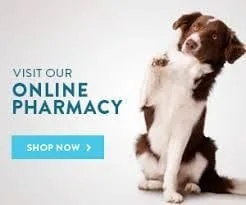
The Importance of Core Vaccines for Dogs
Even healthy dogs can become seriously ill if they're exposed to germs that cause canine diseases. Fortunately, your pet's veterinarian provides several core vaccines that will protect your furry friend's health.
Why Core Vaccines Should Be a Priority for Your Dog
Before the rabies vaccine became available in the 20th century, dogs infected by rabies suffered agonizing deaths. The disease remains almost 100% fatal today, but the vaccine prevents dogs from becoming sick if they're bitten or come in contact with a rabid animal.
A vaccine gives your pet's immune system the information it needs to identify and kill germs. The vaccines your pet receives include killed or weakened germs that don't cause illness but do trigger the production of proteins needed to fight illness. If your pet comes in contact with the virus later, its immune system remembers the germ and attacks it. Thanks to the vaccine, your pet won't get sick or will only develop a mild illness.
Core vaccines provide protection against the diseases that are either the most devastating, are legally required for pets, or are the most common to affect pets. Non-core vaccines are also available. These vaccines aren't needed for every pet and may only be recommended if your pet is at an increased risk for developing a specific disease.
Vaccines help your pet:
- Stop the Spread of Disease. It's difficult for disease to spread from pet to pet when the majority of animals are vaccinated. The rabies vaccine provides an excellent example of the effectiveness of vaccines. After the vaccine was introduced, the number of dogs diagnosed with the disease dropped sharply. Today only 60 to 70 dogs per year are diagnosed with rabies, according to the Centers for Disease Control and Prevention.
Avoid Health Complications. An unvaccinated pet may recover from an illness but develop long-lasting complications that affect the quality of its life. Vaccines not only prevent illness but also help your pet avoid life-changing complications.
Protect Young and Sick Animals. Vaccines prevent your pet from spreading diseases to animals with weak immune systems, those too young to receive the full course of vaccines, or dogs that can't receive vaccines due to a health issue.
Be a Welcome Guest. Kennels and grooming facilities usually need proof of vaccinations before they will accept your dog. - Stay on the Right Side of the Law. Many cities and towns require periodic rabies vaccinations for dogs.
What Are Core Vaccines?
Core vaccines help your pet avoid these potentially deadly diseases:
- Distemper. This disease affects the nervous, gastrointestinal, and respiratory symptoms, causing diarrhea, nausea, vomiting, nasal discharge, and dehydration. As the disease worsens, a dog may experience seizures and could become blind or paralyzed. Fifty percent of unvaccinated adult dogs and 80% of puppies die after contracting distemper, according to Cornell Wildlife Health Lab.
- Parvovirus. Highly contagious parvovirus can be deadly to puppies and dogs housed in kennels, daycare facilities, or shelters. Symptoms include bloating, abdominal pain, vomiting, loss of appetite, fatigue, and bloody diarrhea. Parvovirus can damage the intestines and cause death.
- Canine Parainfluenza. Like parvovirus, canine parainfluenza most often affects dogs that are in close contact with other dogs. The disease can cause coughing, fever, and nasal discharge. Dogs with weak immune systems, like puppies and adult dogs with health problems, can develop pneumonia and even die.
- Canine Adenovirus - 2. Also called canine hepatitis, canine adenovirus affects the lungs, kidneys, and liver, in addition to the gastrointestinal and nervous systems. Symptoms may include nasal congestion, coughing, trouble breathing, sneezing, fatigue, appetite loss, red eyes, and yellow skin. Severe cases can cause seizures or death.
- Rabies. Your pet can contract rabies if an infected animal bites or scratches it or comes in contact with its eyes, mouth, or nose. Rabies symptoms include fever, drooling, difficult breathing, staggering, restlessness, trouble swallowing, and behavioral changes.
Is your pet up to date on its core vaccinations? If not, contact our office to schedule a visit.
Sources:
Centers for Disease Control and Prevention: Domestic Animals
https://www.cdc.gov/rabies/location/usa/surveillance/domestic_animals.html
Cornell Wildlife Health Lab: Canine Distemper
https://cwhl.vet.cornell.edu/disease/canine-distemper#collapse17
ASPCA: Vaccinations for Your Pet
https://www.aspca.org/pet-care/general-pet-care/vaccinations-your-pet
WebMD: Pet Vaccines: Schedules for Cats and Dogs, 11/9/2022
https://pets.webmd.com/pet-vaccines-schedules-cats-dogs
American Animal Hospital Association: Recommendations for Core and Noncore Vaccination



